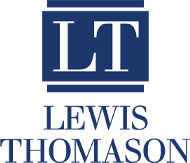A Nashville attorney and heart survivor credits his co-workers’ heroic efforts that ultimately saved his life.
John Lewis had a heart attack his office at Lewis Thomason law firm on February 2.
Before the attack, he told News 2 he had not been feeling well.
“I had been feeling achy, but my wife Barbara had the flu,” he recalled.
John said after deciding to leave work early and chatting with his son, Michael, who is also an attorney at the firm, the last thing he remembers is pushing the elevator button before collapsing.
“He just took a dive, and I tried to break the fall a little bit, but it was hard. He went down,” his son Michael Lewis said.
John had stopped breathing and didn’t have a pulse.
“I was an Army officer. [I] spent 14 months in Iraq. I had seen people die before and I knew he was dead – knew it right away,” Michael said.
The lawfirm is equipped with an automated external defibrillator (AED), which is a portable device that can deliver a shock to a person’s heart. In addition to the AED, a group of staffers were recently trained in basic life support, including CPR.
On the day of John’s heart attack, three women, Christin Bryant, Tasra Lumpkin and Tania Freeman were all there and they had all undergone the training.
“When I came around, they were cutting his shirt off. Tania, she grabbed the defibrillator, and started placing the pads on John. Christin started the compressions [and] I started counting,” Limpkin recalled.
Freeman described to News 2 how the defibrillator worked.
“The machine tells us all to stop, and back up and back off, from around the area. It says it’s running its test, and then it said ‘shock indicated,’ and that was really a scary moment,” Freeman said.
The AED ultimately administered two shocks to John.
Freeman said she moved in again to resume compressions.
“I put my hand on his chest, thinking that we might need to start compressions again, and he moved it away,” she told News 2.
When Nashville Fire Department paramedics Justin Shelby and Mathew McCann arrived on scene, Lewis was conscious and talking.
Shelby later described the type of blockage that John experienced and its ominous nickname.
“He did in fact have a 100 percent occlusion of the left anterior descending artery, which is also known as the ‘widow maker,’” Shelby said.
McCann said, “John wouldn’t be sitting here today with us if there wasn’t an AED in the building, and someone wasn’t properly trained how to use it, and CPR wasn’t so quickly initiated. “
John added, “It really shows you that if you prepare and practice, and everybody knows what they’re doing, that a lot of lives can be saved.”
John is now recovering at home, and he told News 2 his prognosis is good.
See the article on WKRN by Julie Edwards here.




